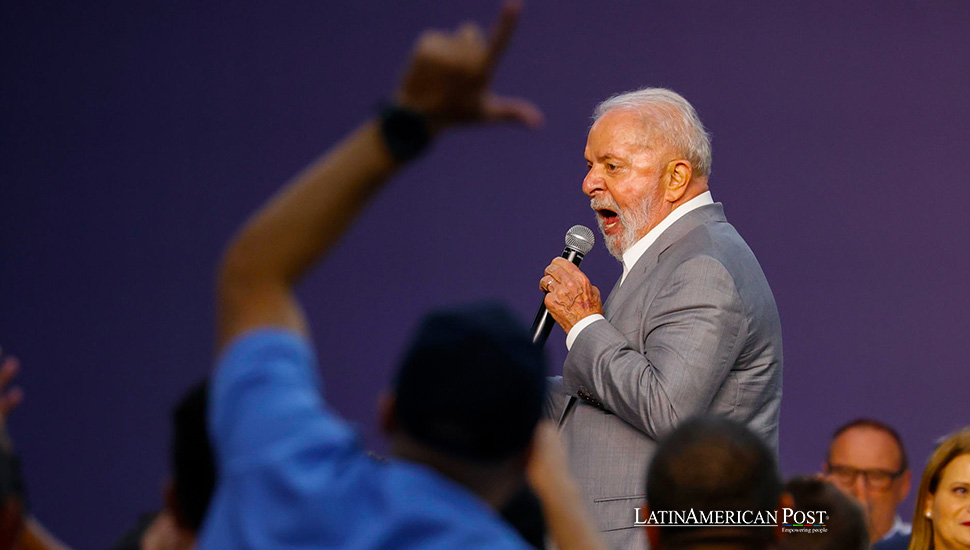Brazil’s Lula Predicts Growth and Inflation Stability in 2024

In a promising forecast for Brazil’s economy, President Luiz Inacio Lula da Silva projects over 2% growth and controlled inflation in 2024, underpinned by policies emphasizing environmental, social, and fiscal responsibility.
Anticipating Prosperity: Lula’s Optimistic Economic Outlook
In an optimistic dispatch to Congress, Brazilian President Luiz Inacio Lula da Silva laid a bright forecast for the nation’s economic trajectory in the coming year. With confidence and strategic foresight, Lula anticipates that Brazil’s economy will expand by more than 2% in 2024, a significant projection that signals a robust recovery and sustainable growth. According to the president, this anticipated growth will be achieved while steering inflation towards the central bank’s target, marking a balancing act of stimulating expansion without igniting price instability.
Brazil’s central bank has set an ambitious yet achievable inflation target of 3%, with a tolerance margin of plus or minus 1.5 percentage points. Achieving this goal amid global economic uncertainties underscores the administration’s commitment to maintaining purchasing power and financial stability for Brazilians. The central bank’s target is not merely a figure but a beacon guiding the nation’s monetary policy toward fostering an environment where businesses and consumers can confidently plan for the future.
In his letter, which heralds the opening of the legislative cycle, Lula delineated how his administration’s economic policy actions are meticulously designed to spur the country’s growth potential. These policies are not solely growth-oriented but are crafted with a keen eye on environmental sustainability, social equity, and fiscal prudence. This triad of responsibilities—environmental, social, and budgetary—forms the cornerstone of Lula’s economic agenda, reflecting a holistic approach to development that seeks to ensure inclusive and sustainable prosperity.
Monetary Easing: Lower Interest Rates and Economic Vitality
A pivotal element contributing to Brazil’s positive economic outlook is the strategic reduction of interest rates, a cycle that commenced last year. Lower interest rates are instrumental in reducing the cost of borrowing, thereby encouraging both businesses and individuals to invest and spend more. This monetary easing is expected to inject vitality into the economy, fueling expansion across various sectors from manufacturing to services and bolstering employment opportunities.
Further energizing Brazil’s economic engine is the anticipated resurgence of financing by public banks. Public financial institutions are critical in Brazil’s economic ecosystem, providing essential capital for infrastructure projects, housing, and small businesses. By revitalizing the flow of credit through these institutions, Lula’s government aims to catalyze investment across the country. This move is poised to unlock a wave of developmental projects and entrepreneurial ventures, laying the groundwork for sustained economic expansion and innovation.
The strategic interplay of falling interest rates and the rejuvenation of public bank financing underscores the administration’s multifaceted approach to fostering growth. These measures, coupled with Lula’s emphasis on responsibility across environmental, social, and fiscal domains, illustrate a comprehensive strategy to accelerate economic growth and ensure it is equitably distributed and does not compromise Brazil’s natural resources or budgetary health.
Vision for Brazil: Lula’s Ambitious Economic Forecast
Lula’s economic forecast for 2024 and the outlined policy measures are a testament to his administration’s ambitious vision for Brazil. By targeting sustainable growth and inflation control, the government seeks to navigate Brazil through the challenges of the global economic landscape while seizing opportunities for domestic development. This vision for Brazil is not merely aspirational but grounded in actionable policies that aim to harness the country’s vast potential.
As Brazil gears up for the legislative cycle, the spotlight on Lula’s economic agenda invites scrutiny, discussion, and anticipation. The success of these policies in achieving the projected growth and inflation targets will be closely watched by economists, policymakers, and the Brazilian populace alike. The stakes are high, as the outcomes of these measures will significantly impact Brazil’s economic stability, social welfare, and environmental conservation efforts.
Critical Phase: Brazil’s Economic Trajectory under Lula’s Leadership
In the broader context, Brazil’s economic trajectory under Lula’s leadership represents a crucial phase in the nation’s development. The emphasis on balanced growth, inflation stability, and comprehensive responsibility sets a precedent for how economies can pursue expansion while addressing the pressing challenges of climate change, social inequality, and fiscal constraints. Brazil’s journey in the coming year will offer valuable insights into the efficacy of such an integrated approach to economic policy-making.
Also read: Cuban Leadership Shuffles Amid Economic Reform Backlash and Cyberattack Disruptions
As 2024 approaches, the world will watch Brazil keenly, eager to see how the country navigates its economic course. The optimism expressed by President Lula da Silva, backed by targeted policy actions, sets the stage for a year of hopeful advancement. The journey ahead for Brazil has its challenges. Still, the groundwork laid by the current administration provides a solid foundation for pursuing a path of sustainable and inclusive growth.




